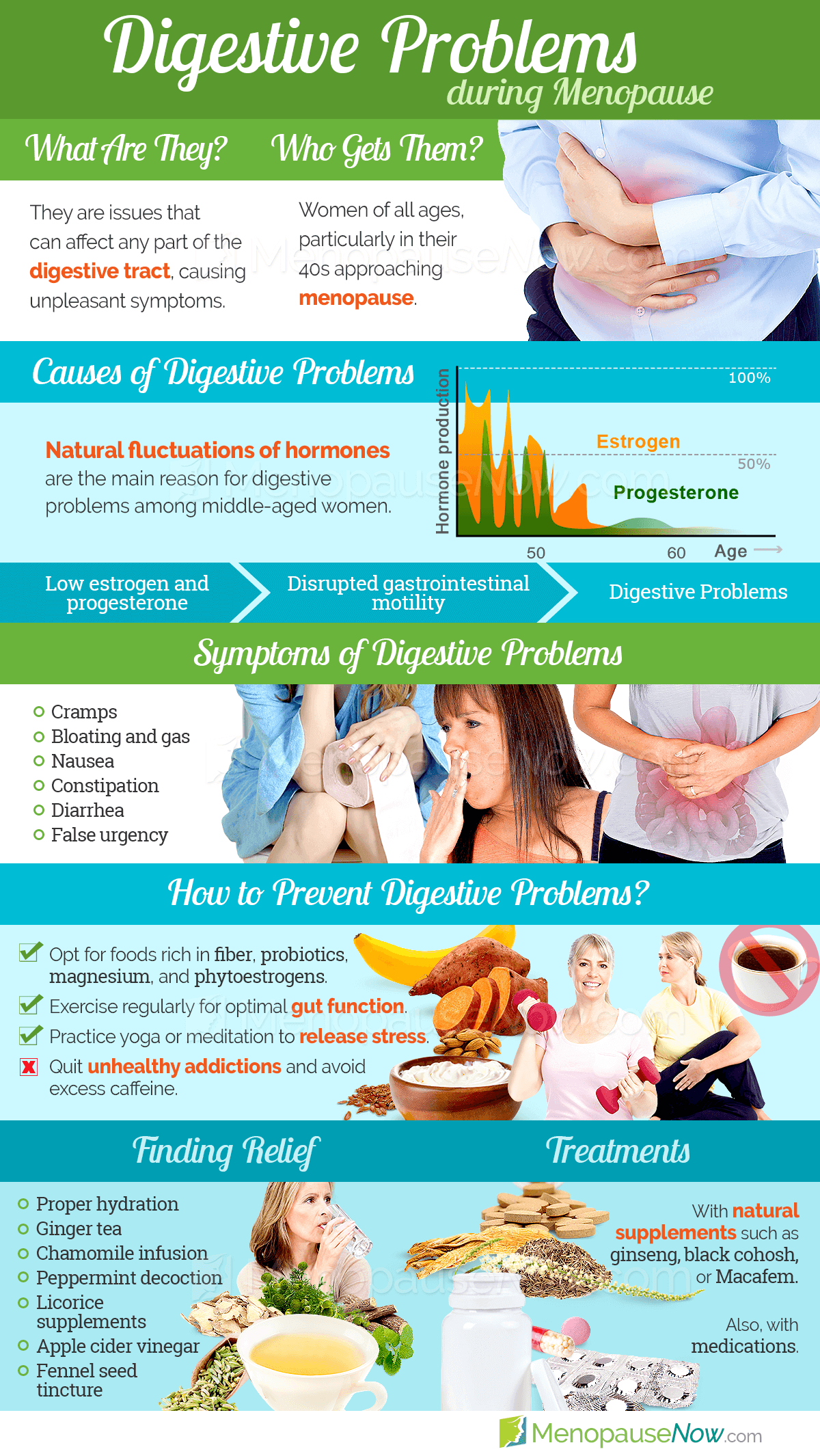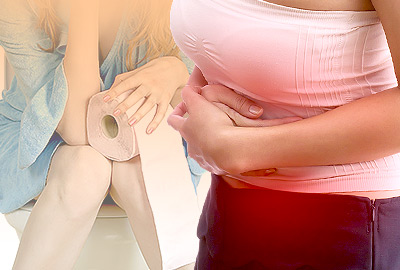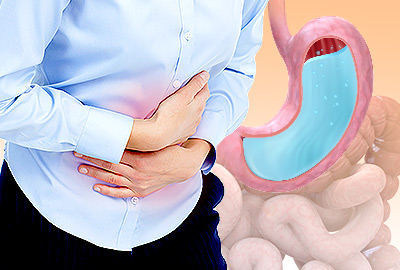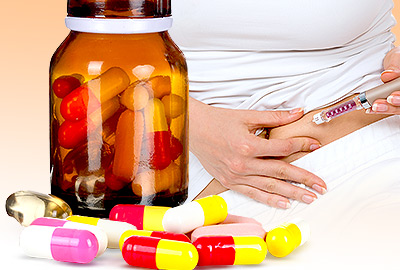The state of the digestive system can be indicative of a woman's overall health. Many women report that digestive problems begin to occur in perimenopause, or the years leading up to menopause. Not only can digestive problems cause discomfort, but they can also lead to more serious health concerns.
Hormonal imbalance during perimenopause is one of the primary causes of digestive problems for women between the ages of 45 and 55. Fortunately, there are treatments that can bring a woman's hormone levels back in balance and relieve her symptoms. Continue reading to learn about digestive problems, their causes, and the different treatment options available.
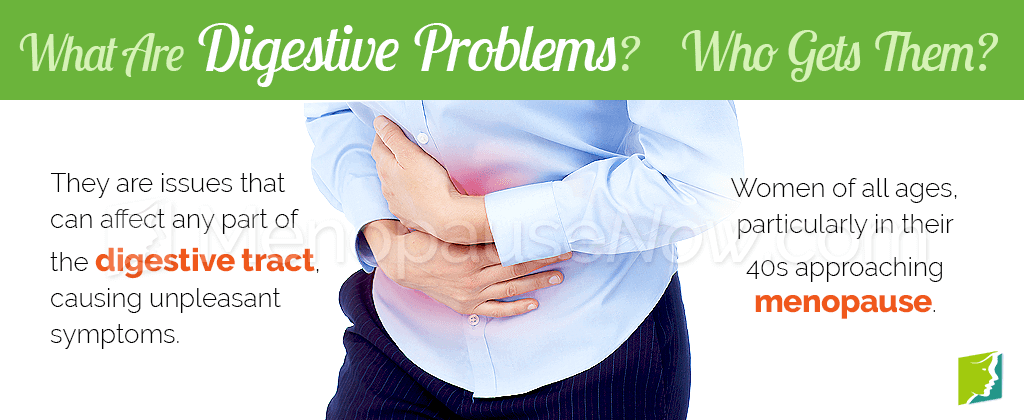
About Digestive Problems
Women are twice as likely as men to develop digestive problems. Digestive problems - also known as gastrointestinal problems or dysbiosis - can come in many forms, such as constipation, diarrhea, and bloating. Each form has to do with how food is broken down once consumed. Because the digestive system is a complex function of the body, issues can arise anywhere along the trip that food takes.
How the digestive system works
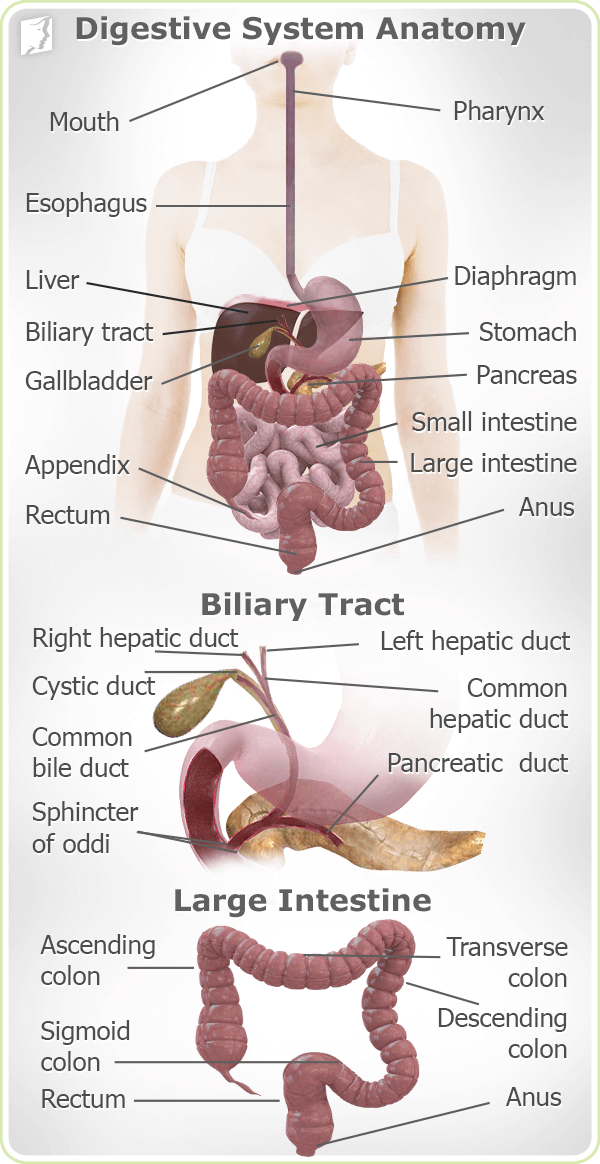
Digestion involves the process of digestive enzymes breaking down food and moving it through the digestive tract. Digestion begins in the mouth, with the act of chewing and swallowing, and is completed in the small intestine.
Once food or liquid is swallowed, the stomach then takes over by storing the food and liquid, mixing the food, liquid, and digestive enzymes produced by the stomach, and finally emptying the contents slowly into the small intestine where nutrients are absorbed. The mixture then moves to the large intestine and colon and waits to be expelled as feces.
Symptoms of digestive problems
There are different symptoms of digestive problems that can indicate different causes. Below is a list of some of the common symptoms of digestive problems:
- Cramps
- Bloating
- Gas
- Constipation
- Diarrhea
- A false urge to have a bowel movement
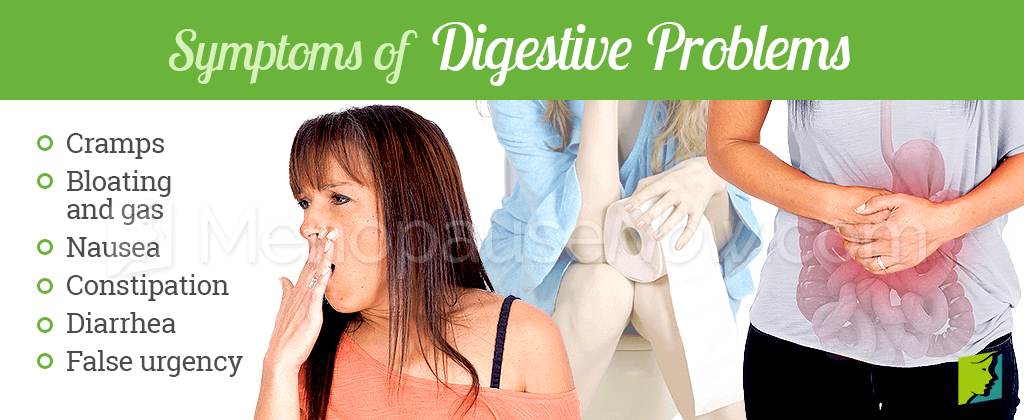
Continue reading to learn more about the causes of digestive problems.
Causes of Digestive Problems
Although there are many potential causes of digestive problems, hormonal imbalance is one of the primary factors during perimenopause. As a woman's body prepares for menopause, the production of estrogen and progesterone fluctuates and eventually decreases. These hormones regulate many different functions in the body. Because of this, women can experience a number of symptoms, including digestive problems.
Hormonal causes of digestive problems
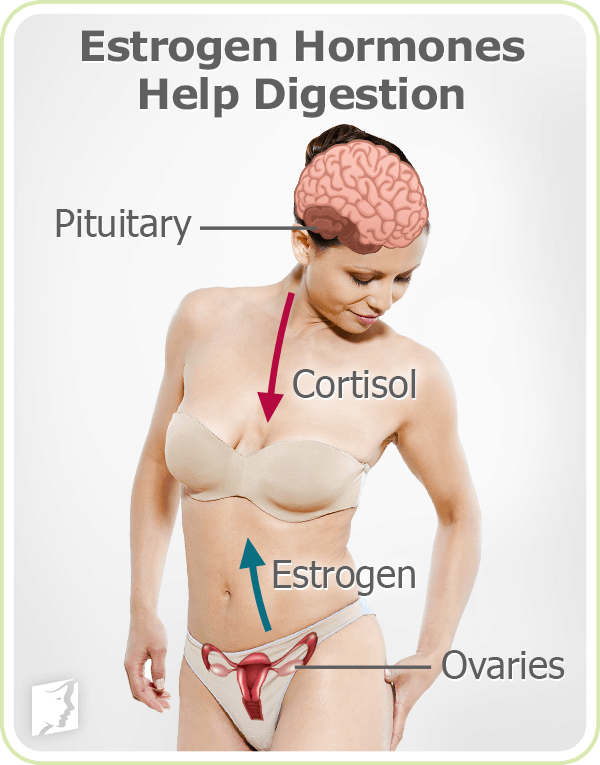
Cortisol is a "stress hormone" produced by the adrenaline gland and is involved in stress responses. It is known to impede digestion and create digestive problems, among other adverse reactions, such as anxiety. As a result of imbalanced hormone levels during menopause, there may be times with high levels of cortisol in the body.
Estrogen has an effect on the stress hormone, cortisol. When estrogen is too low, levels of cortisol rise, raising blood pressure and blood sugar, and slowing down the release of stomach acid and the movement of digested food into the small intestine. This can create some of the symptoms of digestive problems, such as gas, bloating, and constipation.
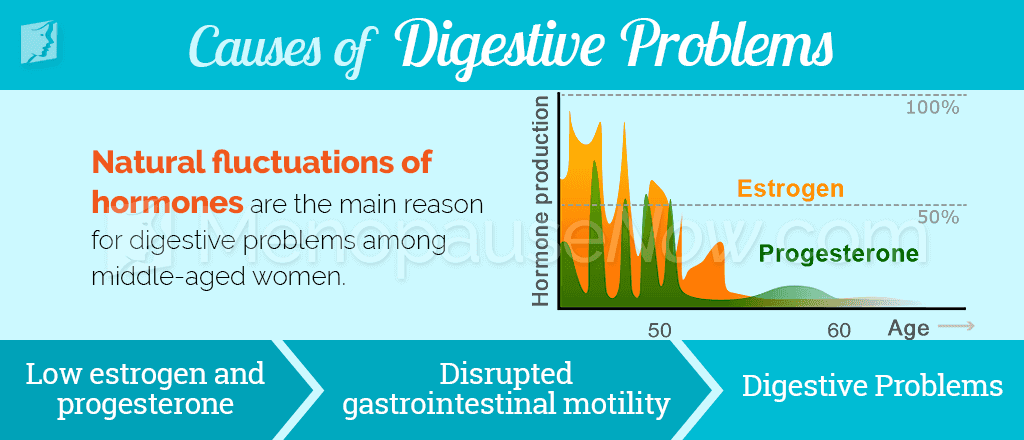
Other causes
There are several other possible causes of digestive problems beyond hormonal causes. Some of these other causes are:
Controllable Factors
- Antibiotics
- Drug and alcohol consumption
- Environmental toxins
- Not chewing food enough
- Smoking
- Inactivity
Poor Diet
- Processed food
- Lack of fiber
- Food allergies
- Too much fatty food
Risk Factors
Some uncontrollable factors can increase a person's susceptibility to digestive problems. These include:
- Depression
- Age
- Genetics
Continue reading to learn difference options available to treat digestive problems.
Digestive Problems Treatments
When exploring treatments for digestive problems, it's important to start with the lowest-risk options and work from there.
This means that lifestyle changes are generally the best place to begin. For instance, sometimes digestive problems can be alleviated simply by drinking more water or eating a balanced, fiber-rich diet.
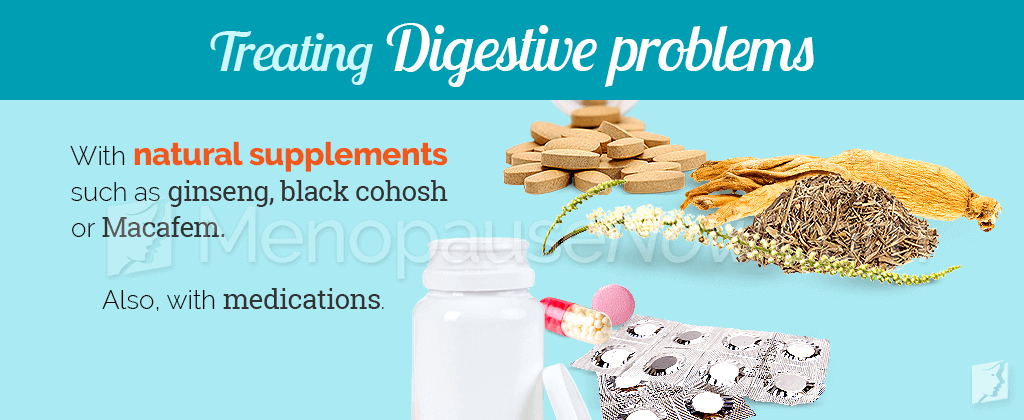
Typically, combining lifestyle changes and alternative medicines will produce the best results. Alternative medicines can be different herbs and supplements, or even techniques like biofeedback. When seeking out alternative medicines, it is best to treat symptoms at their source in order to alleviate symptoms in the long term.
Finally, if digestive problems continue, there are different medications that can be explored. While medications can be effective, there are many potential side effects. Because of the risks involved, consulting a trusted medical professional before beginning these treatments is recommended, especially because persistent digestive problems could point to an underlying condition.
Click on the following link to learn specific treatments for digestive problems, which begin with lifestyle changes, move onto alternative medicines, and finally, if those options do not work, medications. The most effective treatments for digestive problems typically combine lifestyle changes and alternative medicines.
Sources
- Fukudo, S. (2007). Role of corticotropin-releasing hormone in irritable bowel syndrome and intestinal inflammation. Journal of Gastroenterology, 42 Suppl 17, 48-51. Retrieved from http://www.ncbi.nlm.nih.gov/pubmed/17238026
- Heitkemper, M.M. & Chang, L. (2009). Do Fluctuations in Ovarian Hormones Affect Gastrointestinal Symptoms in Women With Irritable Bowel Syndrome? Gender Medicine, 6(Suppl 2), 152-167. doi: 10.1016/j.genm.2009.03.004
- Office on Women's Health. (2008). The Healthy Woman: A Complete Guide for All Ages. Chapter 20: Digestive Health. Retrieved from https://www.womenshealth.gov/publications/our-publications/the-healthy-woman/digestive_health.pdf

